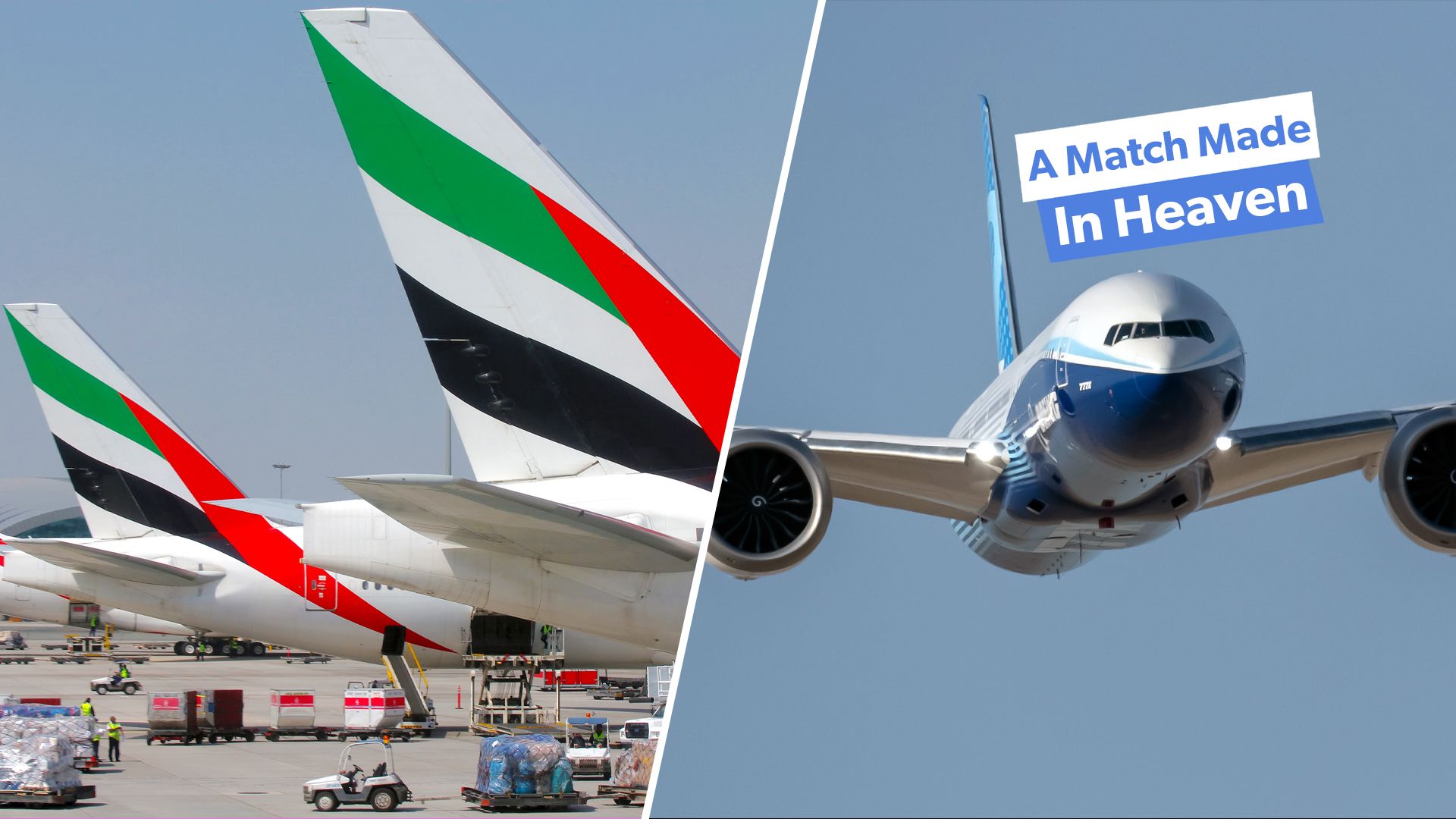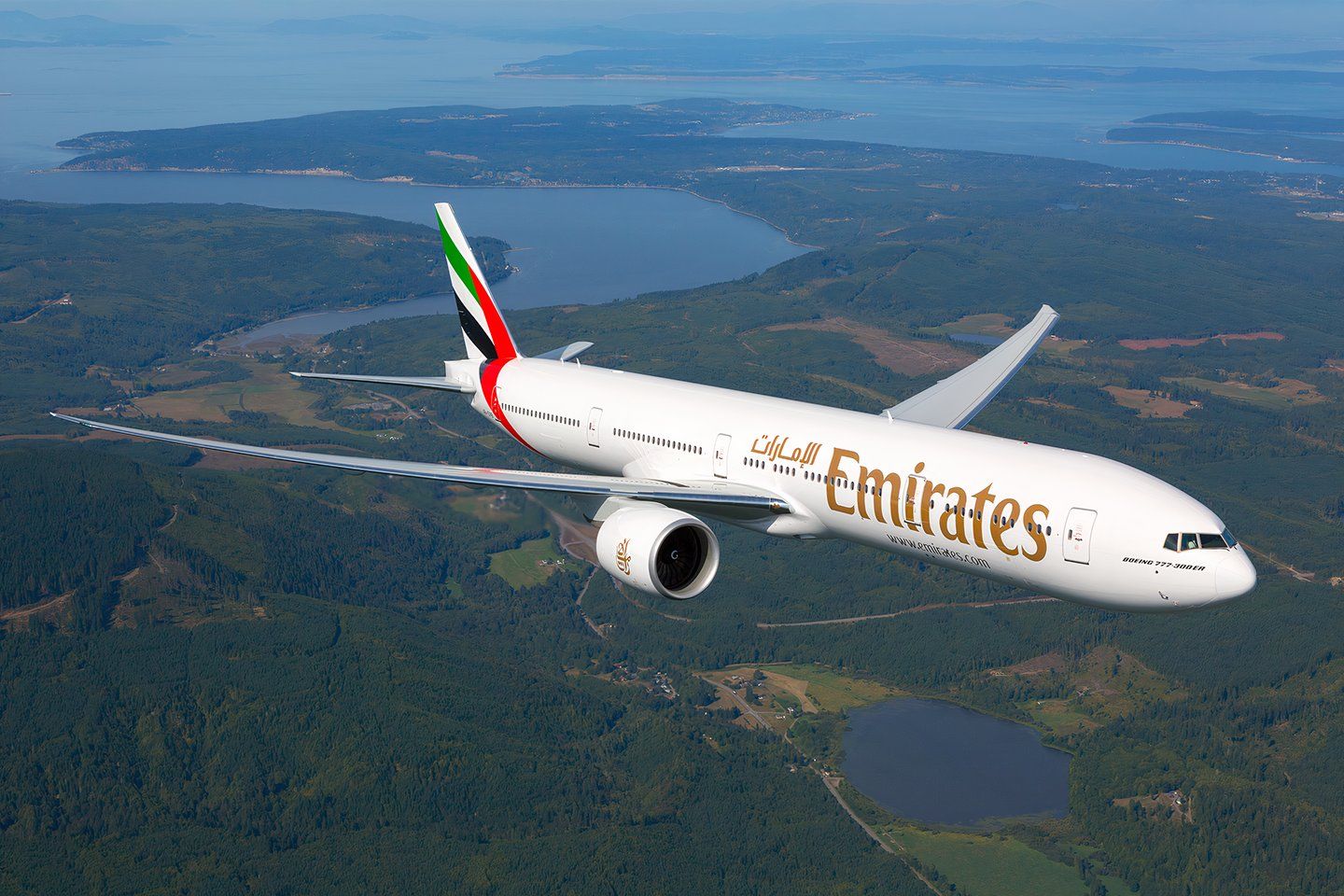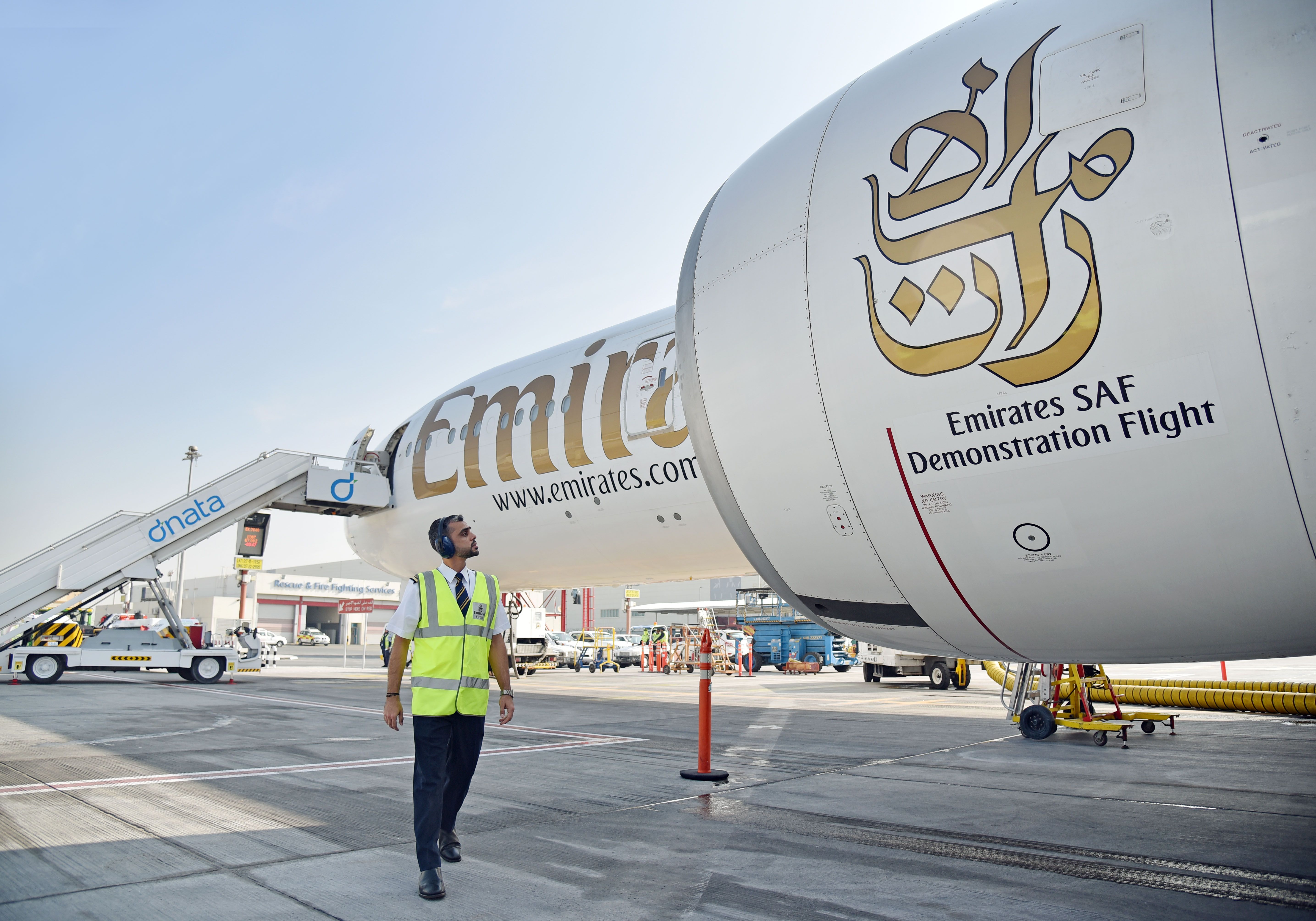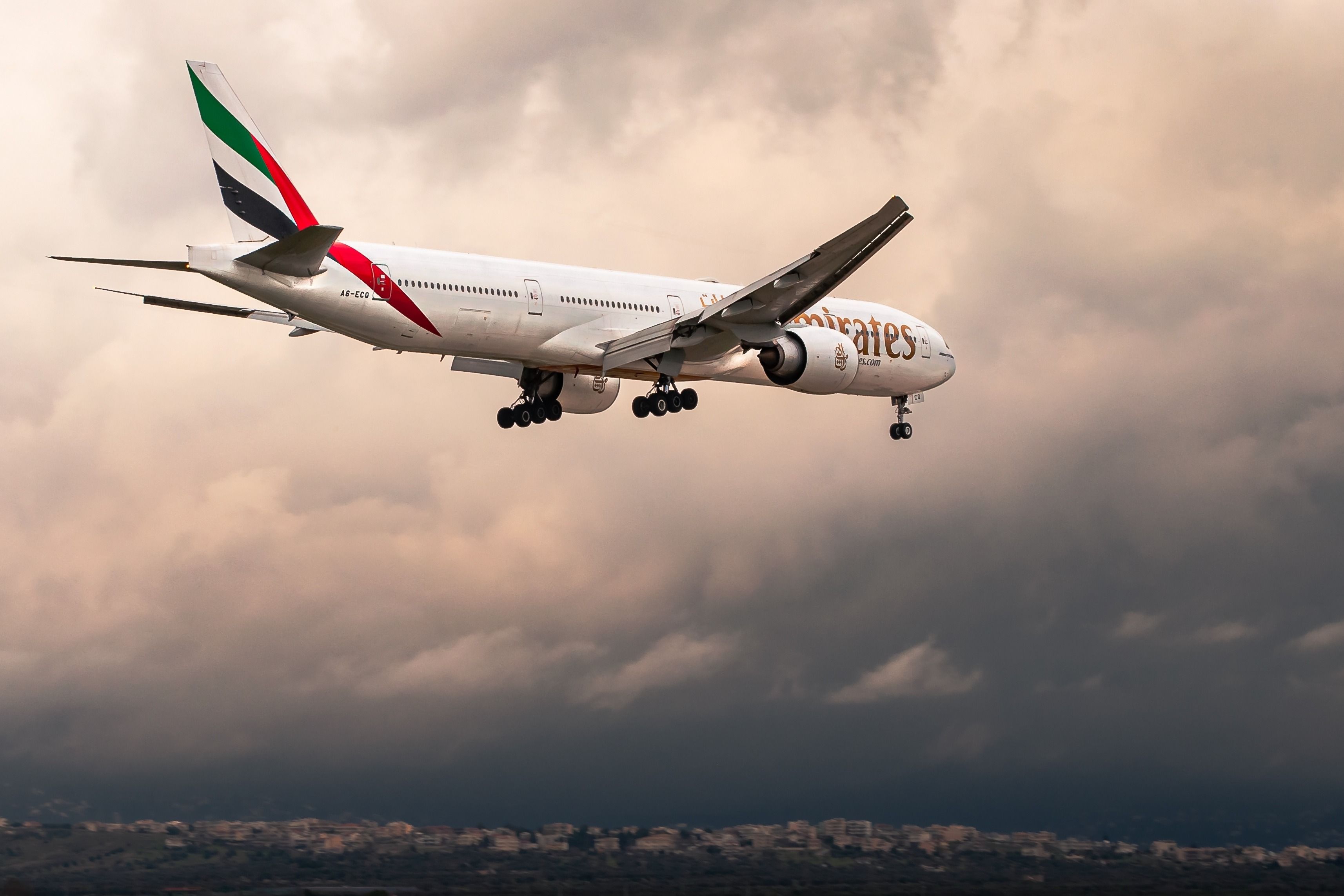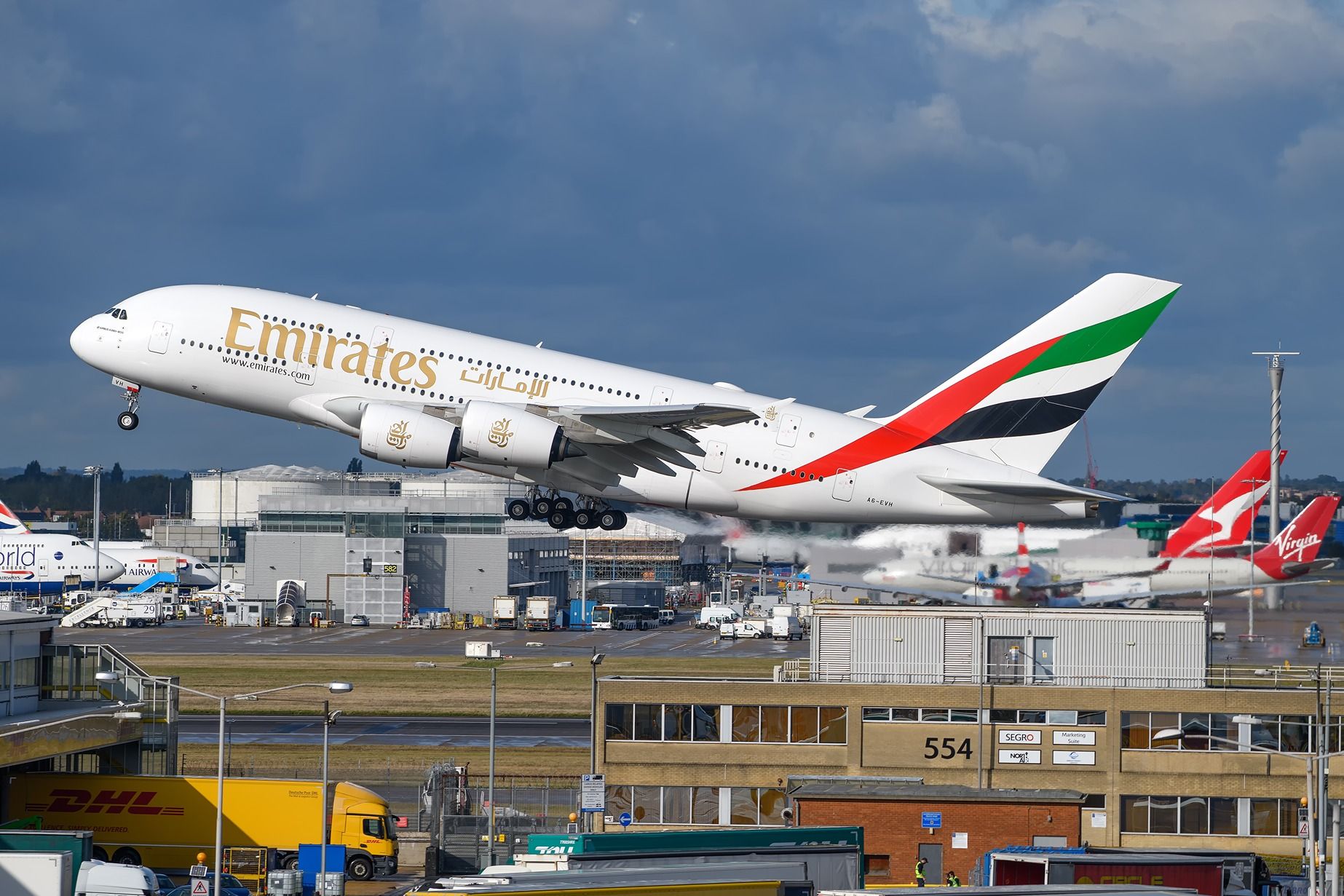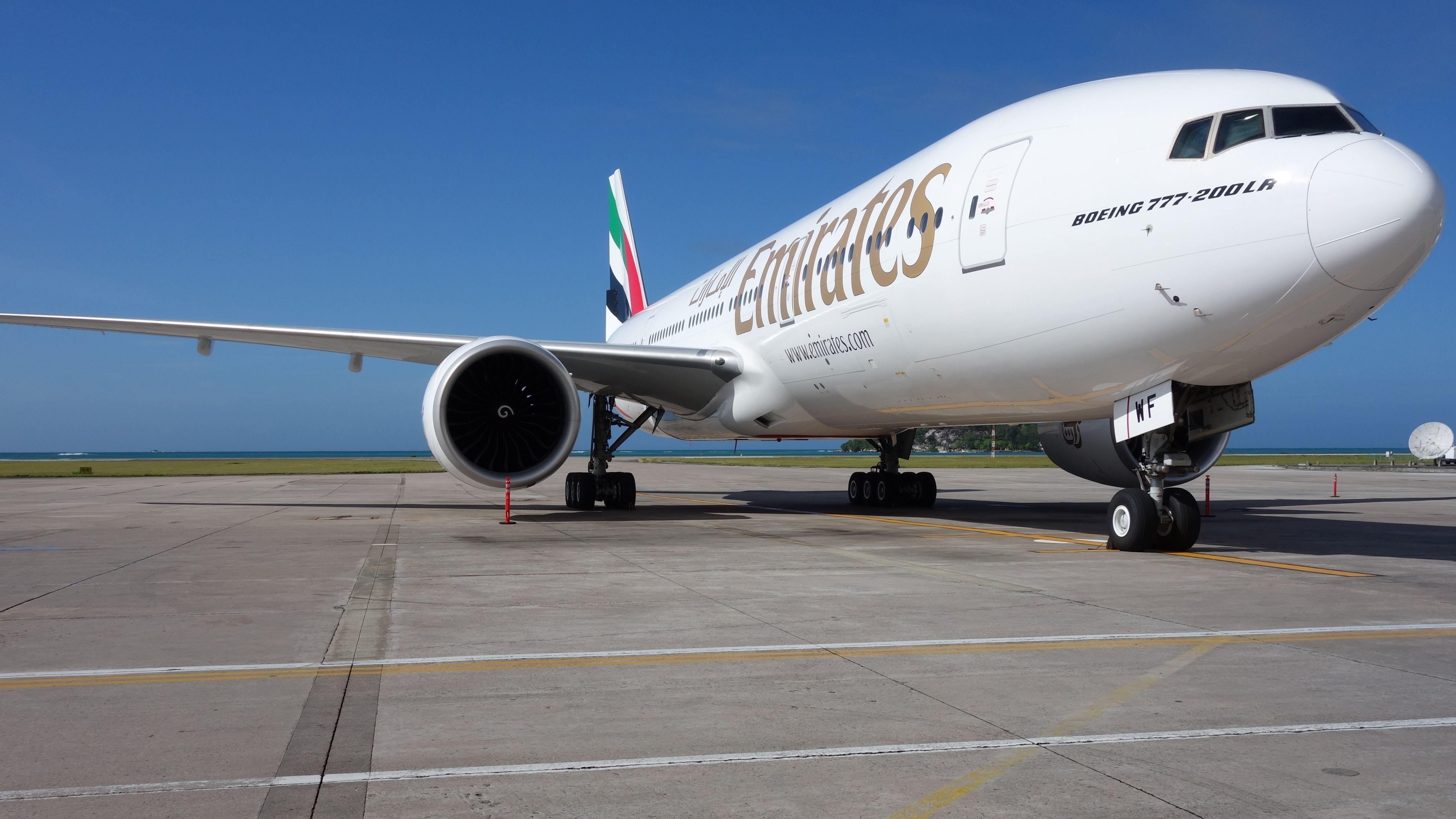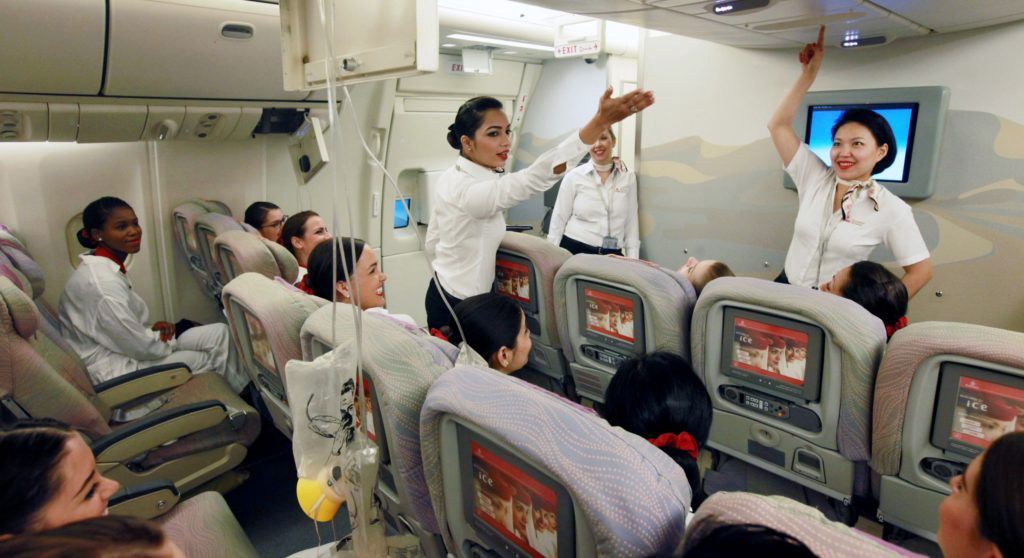Summary
- Emirates is the largest operator of Boeing 777 aircraft with a fleet of 132.
- Emirates plans to phase out its A380s starting in the 2040s.
- Emirates’ strong business relationship with Boeing is evident as it orders 205 units of the 777X.
Dubai-based Emirates is one of the few airlines to operate a widebody-only fleet. The airline only operates two types of aircraft – the Airbus A380 and the Boeing 777-300ER, both of which are among the largest commercial aircraft currently available. With over 100 of each aircraft in its fleet, Emirates deploys the aircraft on a variety of routes, from short 90-minute hops to 16+ hour long-haul flights.
Emirates will become the largest operator of the newest version of the 777 family, the Boeing 777X, when it enters service. The airline made its first order for the jet nearly ten years ago, and has subsequently added more of both variants – the 777-8 and 777-9. While Emirates is expecting deliveries of the 777-9 beginning in 2025, the 777-8 will not be delivered until at least 2030.
Photo: Emirates
Why is the Boeing 777X a good choice for Emirates? Why does it make sense for the airline to order over 200 of the type with deliveries spanning nearly a decade? Simple Flying digs deeper into why it is commercially viable for the airline to order and operate the 777X.
1
Emirates is the largest operator of the Boeing 777
Current Boeing 777 Fleet: 132 aircraft
| Total Boeing 777 fleet | 132 aircraft |
| Active Boeing 777 fleet | 129 aircraft |
Emirates has operated the Boeing 777 family aircraft for over two decades. Over the years, the airline has operated a total of 177 passenger versions of the aircraft across different variants, making it by far the largest operator of the 777.
Photo: Emirates
The latest data from ch-aviation shows that Emirates currently has 132 Boeing 777s in its fleet – 122 777-300ERs and ten 777-200LRs. The airline may be known for its Airbus A380s, but it has relied on the Boeing 777 family aircraft for much longer. Emirates’ 777-200LR fleet is, on average, over 16 years old, while its 777-300ERs come in at 11 years old.
As its current 777s begin to age, it is natural for the carrier to transition to the newer 777X. That said, there is still some life in the 777s yet, with the carrier currently retrofitting a number of aircraft to feature its premium economy cabin.
2
Emirates has operated all variants of the Boeing 777
Current Boeing 777 variants: Two
| Total Boeing 777 types operated | -200. -200ER, -200LR, -300, -300ER |
| Active Boeing 777 fleet | 129 aircraft |
| Active Boeing 777 types | -200LR (10), -300ER (119) |
Emirates holds the title of operating all five passenger variants of the Boeing 777 aircraft. The 777-200, -200ER (Extended Range), -200LR (Long Range), -300, and -300ER. The -300ER is the most popular variant of the family produced by Boeing, and Emirates is the largest operator of the variant.
Photo: Spyros Vasileiou | Shutterstock
With the current active Boeing 777 fleet of 129 aircraft, the airline regularly operates two variants – the -200LR and the -300ER. With that in mind, having operated all variants of the 777 so far, taking the 777X would be the next logical step for the airline.
3
Emirates will begin to phase out its A380s
Emirates plans to retire its flagship Airbus A380s by the 2040s
| Active Airbus A380 fleet | 92 aircraft |
| Inactive Airbus A380 fleet | 26 aircraft |
The airline relies on the world’s largest aircraft, the Airbus A380, for its high load factor routes. While the airline is committed to the quadjet, the aircraft is no longer in production by Airbus. As such, Emirates aims to start phasing out its existing fleet of 118 jets in the coming years. The airline plans to retire all A380s by the 2040s, and therefore, another large airliner must fill the gap, particularly on busy routes.
Photo: Plane Photography | Shutterstock
For example, Emirates currently operates seven flights per day between its Dubai hub and London Heathrow Airport (LHR), six of which are operated by the Airbus A380, seating between 489 and 517 passengers, depending on the configuration. Upon entering the market, the 777X will be the largest passenger jet in production and hence would fulfill the carrier’s needs.
4
Strong business relationship with Boeing
Emirates operates one out of every seven 777s built by Boeing
| First Boeing 777-300ER order | June 2003 (Paris Air Show) |
| First Boeing 777 aircraft retired | 2014 (after 18 years of service) |
Emirates has had a close business relationship with Boeing for a very long time. In June 2003, Emirates placed its first order for 26 Boeing 777-300ER. More than 20 years later, it is the largest operator of the type. Boeing’s statistics suggest that Emirates operates one in every seven 777 aircraft produced.
Photo: EQRoy | Shutterstock
Having nearly 150 aircraft of one type in the fleet shows commitment not only to the aircraft itself but also to the manufacturer. Emirates aims to receive extraordinary fleet support on the 777X. The trust that Emirates has with Boeing has paid off, with the airline ordering 55 extra 777-9s and 35 777-8s at the 2023 Dubai Airshow. This move brought the carrier’s total 777X orders up to 205 units.
5
Minimal flight crew training
Greater crew familiarity with the aircraft operations
- Familiarization of pilots
- Familiarization of cabin crew
- Established infrastructure at Emirates
Pilots and the cabin crew at Emirates are familiar with the Boeing 777 family aircraft. With the carrier’s transition to the 777X, minimal training will be required on the airline’s front. The 777X is not only compatible with its older siblings but also shares similar training and maintenance programs.
Photo: Emirates
Minimal difference training is required for pilots to be certified on the 777X. The same is the case for the cabin crew, who can likely expect to find the transition to be very smooth.

